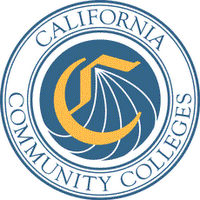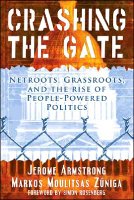The self-eponymous Doolittle
The only thing that might save Congressman
John T. Doolittle is the partisan makeup of his district, drawn to order to send a Republican to Washington, D.C. This year, though, it may not be enough.
Doolittle has his first credible Democratic opponent in years, at least since Patricia Malberg came within two percentage points in 1990 of preventing his move from the State Capitol in Sacramento to the U.S. Capitol. That was in the old 14th congressional district. Doolittle's friends in Sacramento helped him out the following campaign cycle with the new 4th district, reconstructed in an incumbent-protecting scheme to shelter him from future political assaults. The longtime congressman is counting on his registration edge to help him turn back the vigorous campaign of
Charles Brown, a retired Air Force lieutenant colonel. (Doolittle was otherwise occupied during the Vietnam war era, like many other hyper-patriotic chickenhawks.)
Sleaze: As it was in the beginningI remember Doolittle's arrival on the political scene particularly well, since I was on the legislative staff of state Senator Albert S. Rodda when the upstart young Republican upended the gray-haired dean of the senate and terminated Rodda's distinguished legislative career. The Sacramento district represented by Albert Rodda suddenly went from having the most experienced legislator, a retired college professor with a Stanford Ph.D., to having the least, a newly minted lawyer who had never practiced law. Doolittle was helped mightily in his campaign by two factors, one outside his control and another in which he probably colluded.
The first circumstance was the Reagan romp of 1980. The former California governor trounced President Carter in the presidential vote and the Republican tide assisted several GOP candidates, especially on the West Coast, where Carter's early concession speech depressed the Democratic turnout. The second circumstance was a deft political ploy that involved the indictment of a state senator. Sacramento's district attorney, a Doolittle ally, indicted state Senator Alan Robbins, a legislator from southern California, in the days just before the general election. The charges involved lewd and lascivious behavior with high school interns in the senator's State Capitol office. Robbins was accused of having solicited oral sex from teenage girls.
The phones began to ring in Senator Rodda's office. People were horrified that “that dirty old man” had molested underage girls. Rodda's staff patiently explained to those who called that Senator Alan Robbins and Senator Albert Rodda were two entirely different people, but the damage was done. Doolittle, of course, was running a campaign in favor of “family values,” which was convenient in those days of the Moral Majority and Jerry Falwell's campaign stop in Sacramento.
On election day, Albert Rodda lost his re-election campaign by a narrow margin. We noticed, however, that he had carried the absentee vote. It's still true today that the absentee vote trends more Republican and conservative than the election day balloting, but years ago the difference used to be even more dramatic. A Democratic victory in the absentee vote in the 1970s and 1980s used to be a sure harbinger of victory. Rodda's defeat in the face of his absentee win was as sure an indicator as possible that the carefully timed Robbins indictment had served its purpose. Doolittle was now senator-elect. (The Rodda forces regrouped in the next race for district attorney and administered a drubbing to incumbent Herb Jackson, who slunk off into retirement, but that was only a minor consolation.)
The redistricting of the state senate was unkind to Doolittle, a junior senator in the minority party, and he was forced to run again in a new district in 1982, only midway through his first term. A veteran Democratic assemblyman knocked him off. Since Doolittle's original electoral term had yet to expire, he remained in office as a man without a district. During the remaining two years left to him, he set his sights on a fellow Republican, a senior member of the upper house, and managed to knock him off in the GOP primary. Doolittle had now managed in two successful campaigns to remove some of Sacramento's most experienced legislators, dramatically reducing the level of governmental expertise under the golden dome of the State Capitol.
For a while, however, it looked as though Doolittle had picked the wrong fight. The defeated Republican incumbent dusted himself off after the fractious primary and filed for re-election as an independent. Since the Democratic nominee was a nobody, who had won his party's nomination by default, the November contest was shaping up to be a grudge match between the senior incumbent and the pugnacious youngster who was a neo-con before people were calling them that. Democrats and independents were wooed by the incumbent's campaign and Doolittle was looking at trouble.
Just before election day, however, the unknown Democratic nominee suddenly came into a lump of campaign cash and launched a barrage of political mailers. They denounced the incumbent's independent campaign and attacked Doolittle, too. The fliers exhorted loyal Democrats to line up with their party's nominee against the twin evils of Doolittle and his incumbent rival. No Democrat who received the flier was ever likely to have voted for Doolittle. Democratic votes were leaning toward the incumbent, but several heeded the clarion call of the official Democratic candidate and marked their ballots for him. The incumbent state senator's vote tally fell short as Democrats failed to vote for him in the anticipated numbers and Doolittle's Republican votes carried the day.
Only after the election was it revealed that Doolittle had funded the Democrat's campaign. The secret transfer of campaign money had violated the law, so Doolittle had to pay a fine. He undoubtedly considered it the price of doing business.
Since consolidating his position in congress, John Doolittle has continued to be creative in his approach to public service. His wife runs a one-person fundraising organization through which the congressman's campaign contributions are funneled. This makes it possible for Julie Doolittle to skim off a
15% commission before the money goes into the campaign treasury. The congressman hastens to point out that this is not actually illegal. The Doolittles appear not to be bothered by the question of whether it is ethical.

Congressman Doolittle's seat in the House of Representatives is at risk for the first time in many election cycles. President Bush has even made one of his rare trips to California to campaign on Doolittle's behalf and to appear at a
fundraiser. Was 15% skimmed off by Julie for the household bank account?
Doolittle's legal and ethical failings are by no means enough to deter his fanatical admirers. The congressman is in favor of God and good stuff like that, and opposed to Satan and evil stuff like that. What more does a dull voter need to know?
From the October 5, 2006,
Letters to
The Bee:
The case for Doolittle
After reading the various letters condemning Rep. John Doolittle, I stand with Doolittle, and I'll tell you why.
Doolittle stands with President Bush on the war on terrorism, and yes, we are engaged in a war! President Bush has taken the initiative on this war on terrorism and is using some bold and different initiatives to win. Rather than wait for the terrorists to attack us again, he has carried the battle to them.
The Democratic leadership has shown no initiative at all in winning this war except to expound their “cut and run” strategy and return to the failed policies of the past. According to the dictionary, a traitor is defined as a person who commits treason by betraying his or her country. And treason is defined as the crime of giving aid or comfort to the enemies of one's government. That is exactly what the Democratic leadership has been doing.
Terrorists are not dumb; they are waiting to exploit the division in our ranks that the traitorous Democratic leaders are fostering on the American public.
Remember, a vote for Doolittle is a vote to win the war against terrorism and assure that America remains a beacon of freedom in this world.
Les Polette, Auburn
Got that? John Doolittle supports a president who fights terrorism. Very ineffectively, of course, but I guess it's the thought that counts. And his rival? Well, if we're in a war, perhaps we should try to benefit from the expertise of an experienced military man like Charlie Brown. In the eyes of Doolittle's supporters, though, Brown is disqualified because he supports civil rights and carries an ACLU membership card. Frankly, given the way the administration in Washington is going, we had all better watch out for our civil rights. It's that “beacon of freedom” stuff, Mr. Polette.
Update: You can read much, much more about the reasons John Doolittle doesn't belong in congress at
Dump Doolittle, a blog supporting his opponent.
 Our silly president commissioned a report from the Iraq Study Group, a council of learned elders and retreads from previous administrations, when all he really had to do was chat up Stephen Oakley of Fair Oaks. Mr. Oakley disdains the defeatist talk coming from the ISG because he can solve all of our problems in Iraq with a snap of his fingers and his own personal Fourteen Points (equal in number, but not in tenor, to Woodrow Wilson's).
Our silly president commissioned a report from the Iraq Study Group, a council of learned elders and retreads from previous administrations, when all he really had to do was chat up Stephen Oakley of Fair Oaks. Mr. Oakley disdains the defeatist talk coming from the ISG because he can solve all of our problems in Iraq with a snap of his fingers and his own personal Fourteen Points (equal in number, but not in tenor, to Woodrow Wilson's).





















